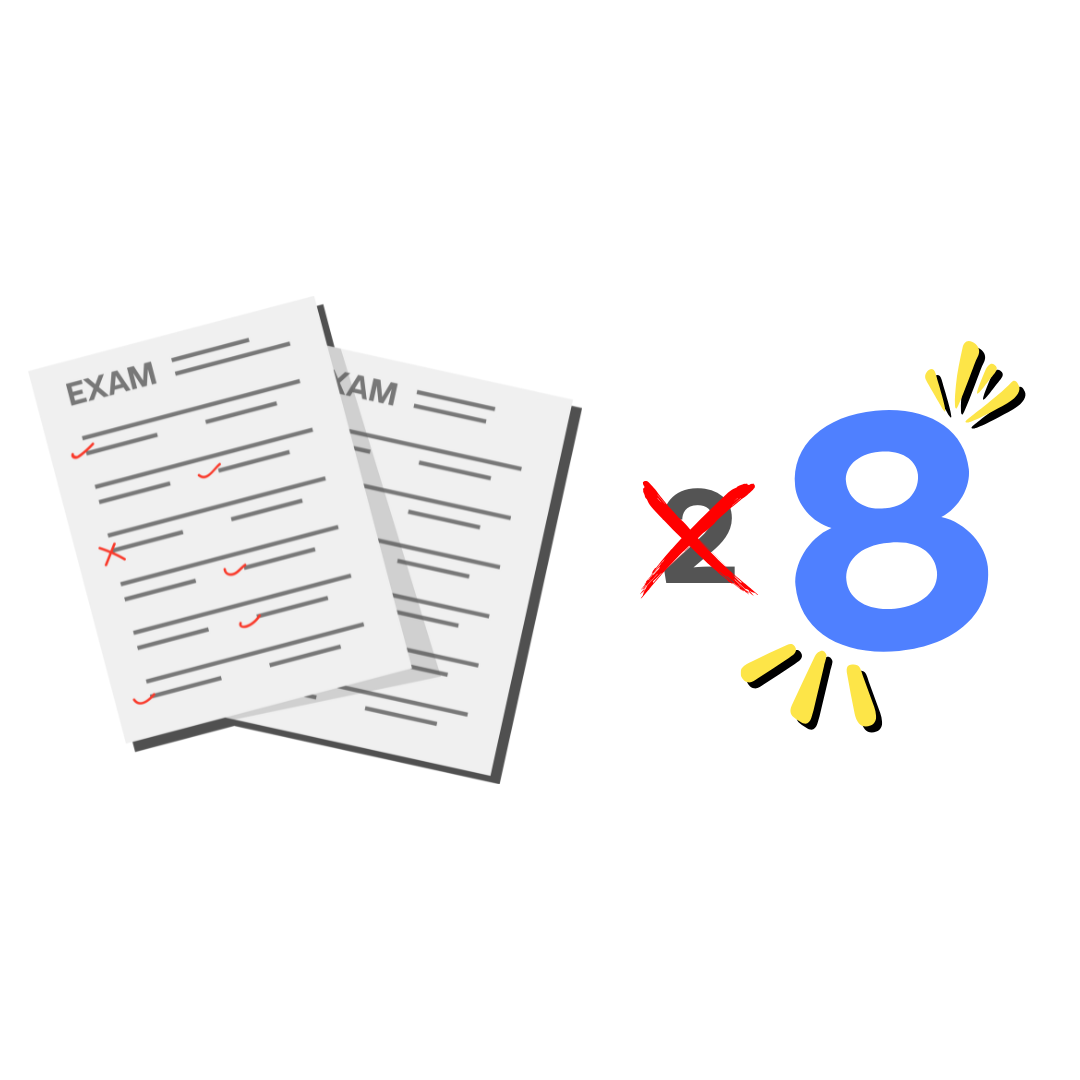From a 2 in My GCSE Mock to an 8 in the Real Exam: How to Turn Feedback into Success
When your mock exam results aren’t what you hoped for, it can feel like the end of the world. However, your teacher’s feedback is a gold mine for growth—and it can completely change your academic journey. In this post, we share a detailed guide on how to analyse your mock exam feedback, create a structured study plan, and turn disappointing marks into exam triumphs.
Why Mock Exam Feedback is Crucial
Mock exams are not just practice tests—they’re strategic checkpoints for your learning. Analysing feedback helps you to:
Identify Specific Weaknesses: Understand which parts of the exam cost you marks.
Improve Your Exam Technique: Learn from detailed teacher comments and examiner reports.
Refine Your Revision Plan: Adjust your study schedule to focus on areas needing improvement.
My Journey: From a 2 to an 8
In the podcast episode, Blair spoke about one of her most challenging moments, she received a 2 in one subject during her mock exams. Instead of giving up, she used that feedback to rework her study approach. Here’s how she did it, and how you can do it too:
Key Lessons Learned:
Embrace Every Comment: Whether the feedback is positive or critical, each note is a roadmap for improvement.
Establish a Structured Routine: Adopt a “military-style” schedule that balanced focused revision sessions with scheduled breaks.
Leverage Support: With support from family and study partners, you can stay accountable and motivated.
How to Analyse and Act on Your Feedback
1. Organise Your Feedback
Collect feedback from multiple sources:
Teacher Comments: Look for personalised advice.
Examiner Reports: Identify common issues across the cohort.
Self-Reflection: Note down your own observations immediately after the exam.
2. Create a Detailed Feedback Sheet
Set up a two-column sheet:
Column 1: Areas for Improvement (e.g., “silly mistakes,” “lack of detail,” “misreading the question”).
Column 2: Marks Lost & Suggestions (e.g., “lost 10 marks—use PE paragraph structure”).
3. Develop a Targeted Study Plan
Based on your analysis:
Focus on Weak Points: Allocate extra study time for topics where you lost the most marks.
Revise Exam Techniques: Use past paper questions to practice answering in the style your teachers expect.
Regular Reviews: Incorporate periodic revision sessions so that you can steadily improve.
For more detailed revision strategies, read our post on Study Timetable Secrets.
The Importance of a Growth Mindset
Transforming mock exam feedback into improved results is as much about mindset as it is about technique:
View Setbacks as Opportunities: Instead of feeling defeated by a low score, see it as a chance to learn.
Stay Motivated: Every piece of constructive feedback is a stepping stone to your desired grade.
Build Confidence: Each improvement, however small, boosts your overall confidence and readiness for the final exam.
Additional Strategies for Exam Success
Diverse Revision Techniques
While analysing feedback is critical, complement your studies with these methods:
Active Recall: Use flashcards to test yourself on key concepts.
Simulated Exams: Practice under timed conditions to build exam endurance.
Group Study: Join or form a study group to discuss feedback and revision strategies.
Leveraging Teacher Guidance
Don’t hesitate to reach out for help:
One-on-One Meetings: Schedule sessions with your teachers to discuss your feedback in detail.
Email Follow-Ups: If you cannot meet in person, send a well-crafted email summarising your concerns and asking for advice.
Peer Feedback: Sometimes discussing with classmates can also provide new insights.
Final Thoughts
Turning your mock exam feedback into exam success is a step-by-step process that involves organising feedback, developing a targeted study plan, and maintaining a resilient mindset. Here’s a quick recap:
Gather and Organise Feedback: Use teacher comments, examiner reports, and self-reflections.
Analyse Your Mistakes: Create a detailed feedback sheet to identify trends.
Develop a Targeted Study Plan: Focus on your weak areas and adjust your revision strategies.
Adopt a Growth Mindset: See every setback as an opportunity to learn and grow.
By harnessing the power of feedback and refining your revision techniques, you can turn even the lowest mock exam score into a launchpad for success. Remember, every setback is an opportunity to rise higher—keep pushing forward!
Next Steps
Check out the podcast episode for more information and insight on this topic: Listen Here.
Follow our socials for more regular content on GCSE study: Follow Here.
Sign up for BrightTeach with a free 14 day trial: Sign Up Here.




